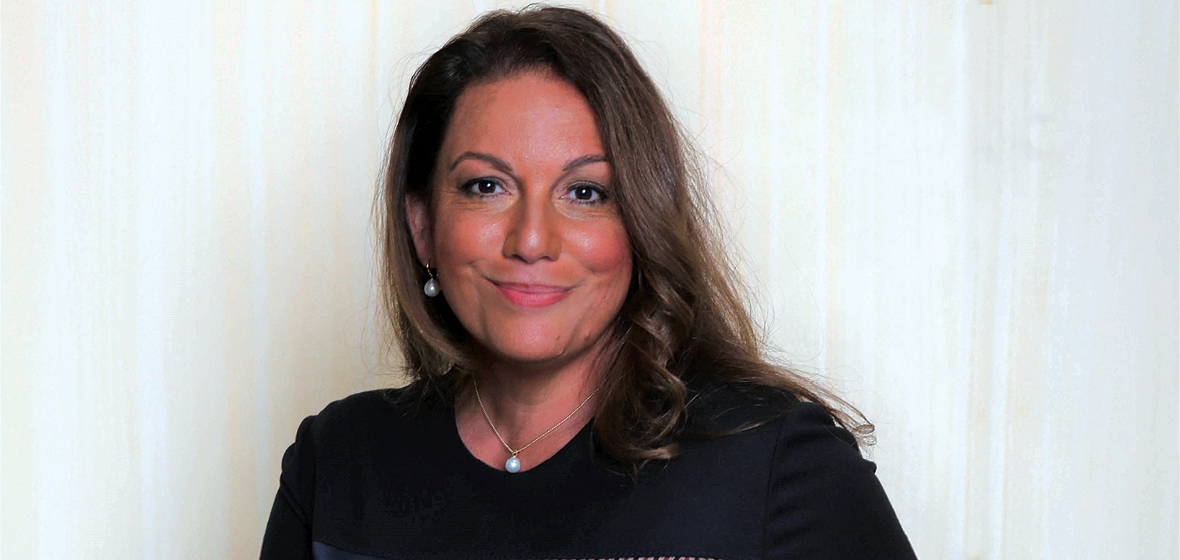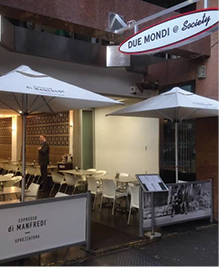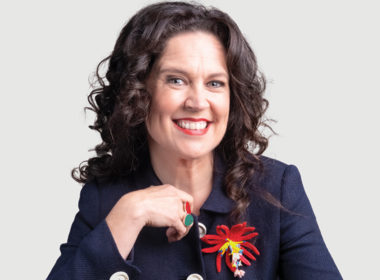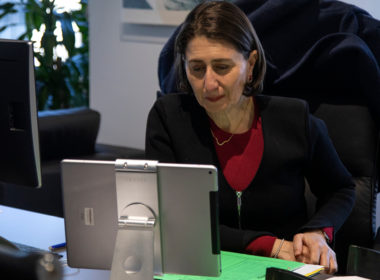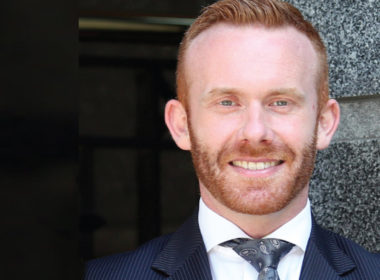The new CEO of the Law Society of NSW is a proud Yuin woman; the first Indigenous person and the first woman to hold the position in the organisation’s 136-year history. Sonja Stewart shares her journey and vision over lunch.
Booking a meeting spot in a CEO’s diary can be like trying to score a trendy dinner reservation in a pandemic. You will likely need weeks of warning and multiple date and time options.
But meeting the freshly minted CEO of the Law Society of NSW, Sonja Stewart, for lunch on a balmy Thursday in October feels as easy as catching up with an old friend.
It’s partly because Stewart has already made it her mission to meet and greet the more than 150 Law Society staff members – including the LSJ team – in her first weeks as head of the organisation. An ambitious goal when you consider most staff are working remotely.
It’s also because Law Society staff have been getting to know Stewart since she kicked off her first week with a heartening “Spring has sprung – week one” welcome email. She has followed up with ritual “weekly updates” to all staff, which span multiple pages and topics and are focussed on delivering the vision of the Law Society – to lead the profession, serve its members, and ensure a just legal system. Meetings with members, media interviews, events, and delivery come top of the agenda, but we have also gleaned insights into her family life and leisure pursuits.
She’s passionate about work but also family-oriented, with four almost-adult children and a husband she met in primary school. Her two teenage girls play soccer and AFL. She likes to swim laps on her lunch breaks.
“Leaders need to be authentic,” she tells LSJ over lunch at Due Mondi café on Phillip Street.
For me, being the first woman, the first Indigenous person as CEO, it’s a privilege and a responsibility. I just don’t want to be the last.
We are discussing authenticity in the context of Stewart beginning her new role in a business that has shifted almost entirely online through the COVID-19 pandemic. How does the CEO approach remote working? She is a huge proponent of it.
“I’m trying to work remotely because I think it sets the tone and shows people they don’t need to come into the office all the time to get work done,” she says.
“I have worked in office environments where I have been a key leader in saying, ‘If not, why not?’ regarding flexibility in roles. I have said all roles should have an element of flexibility. Not only for people with children. Not everybody chooses to have a family or is able to – but they may have other sporting or other interests and want to balance that with their work.”
Stewart took the reins – remotely, for the most part – at the Law Society on 31 August. She adds to an impressive resume listing state and federal government roles, and most recently was Interim CEO of Arilla Indigenous Consulting, a joint venture with consulting firm KPMG. She has been a Chair and director on multiple boards and was in August appointed Chair of the GO Foundation, an Indigenous education foundation that is the brainchild of AFL stars Adam Goodes, Michael O’Loughlin and their friend James Gallichan. This appointment was announced the same week she arrived at the Law Society.
The fact that has received most media attention, however, is that Stewart is the first woman, and the first Indigenous person of any gender, to be appointed CEO of the Law Society of NSW. It’s a milestone Stewart admits has huge significance.
“I’m a real believer in ‘if you can see it, then you can be it’. For me, being the first woman, the first Indigenous person as CEO, it’s a privilege and a responsibility. I just don’t want to be the last,” she says.
Stewart suggests we meet at Due Mondi – a no-fuss sandwich bar and café that turns out speedy working lunches for the wigs and suits dashing across Phillip Street between hearings at the Supreme Court building. We both opt for the salmon salad. I make a mental note that fish must be plentiful in Yuin country, which is the land of Stewart’s ancestors and the Indigenous nation she calls home on the NSW south coast.
Her father is Indigenous while her mother’s parents were immigrants from Switzerland and former Yugoslavia. If anyone needed a reason to believe her commitment to “being” and “seeing” diversity in the legal profession, they only need look at a Stewart family tree.
Stewart was the first in her family to go to university. She studied a double degree in law and commerce at the University of NSW (UNSW) in the 1980s, alongside an impressive cohort of Indigenous peers who punched above their weight considering the relatively low numbers of Indigenous enrolment at the time. Lawyer Dr Terri Janke, journalist, academic and filmmaker Professor Larissa Behrendt, and author and social commentator Dr Anita Heiss were among the regular faces at the Indigenous student centre.
The journey has never been easy. Stewart admits racism has affected her, but she no longer lets it knock her for six.
“As you get older and have more experience, you approach it better,” she says. “You don’t ever accept it, but you get better at processing and responding and dealing with it.
“I feel that the barrier sometimes emerges as people realise [I’m Indigenous] – perhaps their biases or views on my capability. But I think, if anything, it’s a barrier to themselves in terms of being open and having views about what Aboriginal people can do. We are a very resilient people, with so much capability and capacity.”
Stewart says her career highlights have been where she has helped team members to “reach their full potential”. This remains her goal for the Law Society: to create conditions for success of the Law Society President and Council to serve the legal profession in NSW and ensure a just society.
“I have been overwhelmed by the work that everyone involved in the Law Society does, especially the councillors, the policy committees and countless volunteers,” she says.
“There is such a strong sense of duty and care to uphold the legal system. Their dedication to concepts of the rule of law, equality before the law, innocence until proven guilty, the separation of powers; it’s inspiring. The rule of law is so important particularly in times like these after the bushfires, during COVID, with the Black Lives Matter movement. All such noble ideas and values we should fight for.”

